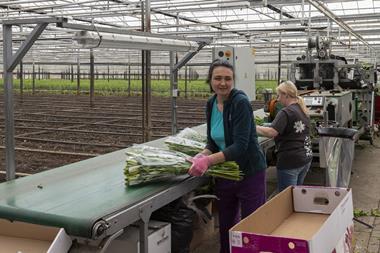Ireland-based Tontine Trust is aiming to launch personal pension products “in a couple of markets” by the end of the year with the EU’s pan-European personal pension product (PEPP) in mind, according to its CEO Dean McClelland.
The product is to charge an all-in fee of 1% and introduce separate pools for men and women.
Tontine Trust has partnered with Dutch consultancy Westerbrink to help with the planned launch of the product and with expanding to markets beyond Ireland, where the fintech company aims to launch its pan-European product first.
“We will take care of the legal aspects of launching the PEPP, such as the compatibility of the product with tax legislation in each jurisdiction where it will launch, and we will do market research for them to investigate which markets have the most potential,” said Hans van Meerten, partner at Westerbrink.
According to McClelland, so far Tontine Trust has 10,500 people on its waiting list, most of whom are aged between 45 and 65. All of these come from Ireland, the UK or the US, where the company is planning to launch a separate product. The company aims to have registered its PEPP in 33 European countries by the end of 2021, but Van Meerten admits this is a “good weather scenario”.
McClelland says he will focus on markets “with unsatisfactory pension products” or a lack of pension provision, but declined to name any specific countries.
“We want to launch in a couple of markets first and after that I believe we can add multiple countries a month,” he said. ”The beauty of PEPP is that we do not need to register in separate countries. We just need to make sure our product is compliant with local tax codes.”
Because some EU rules for the PEPP still need to be finalised – so-called delegated acts – it is expected that providers won’t be able to apply for PEPP licences before late 2021.
Tontines
McClelland said his initiative takes aim at “inadequate and expensive” annuities offered by insurance companies. As an alternative, Tontine Trust pools the money its clients have reserved for retirement to protect against longevity risk.
These so-called tontines, a concept invented by the Italian banker Lorenzo de Tonti in 1653, are similar to annuities: members will receive a fixed, life-long monthly payment for the rest of their lives. But the difference is that the members have insured the longevity risk among themselves.
According to McClelland, this makes the product cheaper than an annuity while offering similar investment outcomes.
“We will charge an all-in fee of 1%, and we don’t charge additional fees for switching to the decumulation phase as is the case with annuities,” he said.
The fee being right at the 1% cap for the PEPP was a coincidence, according to McClelland.
The final PEPP regulation stipulated a fee cap for the so-called Basic PEPP, the default option, of 1% of accumulated capital per annum, and a requirement for PEPP providers or distributors to provide advice, including a personalised recommendation, to customers. Asset managers and insurance companies have warned that with a 1% fee cap including advice costs there is a risk the PEPP would turn out not to be a commercially viable product.
Separation of the sexes
Initially, Tontine Trust will offer a single defensive portfolio to participants, targeting annual gross returns of 4.5%. The money will be managed externally but an investment management partner is yet to be appointed.
One of the main criticisms of tontines is that the structure leads to higher pay-outs once time passes as the remaining members profit from the death of their fellow participants. However, pensioners typically spend more in their early years of retirement and see their outlays dwindle as they age.
“Unfortunately, we have not found any design that allows us to pay higher benefits to those aged between 65 and 80, and less to those over 80 that doesn’t increase the risk of bankruptcy for the fund,” said McClelland, who claimed post-retirements pay-outs will still be “significantly higher” than those offered by comparable insurance-based schemes.
Clients will be placed in separate tontines based on their age and, interestingly, their sex. This is because women have a higher life expectancy than men.
“The men fully agree with this solution, but the women don’t because they want to profit from them outliving the men,” McClelland said, adding that he is looking at introducing additional factors that impact life expectancy, such as educational level, at a later stage.












